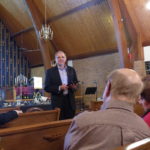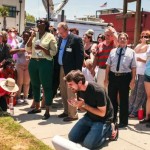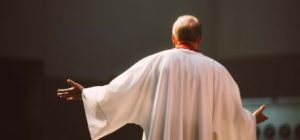
Dear Sisters and Brothers in Christ,
Karen Oliveto, a gifted leader, was elected a bishop in the Western Jurisdiction of The United Methodist Church. She is a lesbian. This is not the first time a gay or lesbian has been considered for bishop. Bishop Oliveto will serve the Denver area, which includes 386 United Methodist congregations in the states of Colorado, Utah, Wyoming and Montana. Last week, she was one of 15 people who were elected as bishops in Jurisdictional Conferences across the United States. Her service as a bishop has been challenged and will be heard before our Judicial Council (the UMC’s Supreme Court).
We elect bishops in the United States in five regions called jurisdictions. Outside the United States, in Europe, Africa and the Philippines similar elections are also held in what are called Central Conferences. It takes 60% of the delegates to elect a new bishop. Delegates are an equal number of clergy and lay persons from annual conferences within the jurisdiction or central conference. There are 66 bishops leading conferences around the world and more than 70 retired bishops.
During the Jurisdictional Conferences, each of the five jurisdictions considered legislation and four of the five jurisdictions in one form or another voted to recommend that the denomination allow for theological diversity and ministry with LGBTQ persons. At the General Conference, a special commission was empowered that would completely examine and possibly recommend revisions of every paragraph in the Book of Discipline related to homosexuality.
There is deep disappointment and even rage within the church that a lesbian was elected bishop. For others, there is profound appreciation and joy. For most there is concern. What will this mean for our beloved United Methodist Church? Will it create a schism? Will it sidetrack us from our mission of making disciples of Jesus Christ for the transformation of the world? Some want to know, what does it mean when people openly disobey our rules contained in our Book of Discipline?
Right now we are faced with more questions than answers. A lot of questions are not necessarily a bad thing. Jesus often led with questions and used questions as part of his teaching. Jesus asked, “Who do you say that I am?” (Matthew 16:15) “Can any of you by worrying add a single day to your life?” (Matthew 6:27) “Why are you afraid?” (Matthew 8:26) and “Why do you doubt?” (Matthew 14:31). These are just a few of the questions Jesus asked.
Having questions right now is appropriate. Like Jesus’ questions, they give us the opportunity to dive deeper into faith or to turn to a different direction. For me I want to reflect on the questions to deepen my commitment to God, recommit to follow Jesus, grow in my love for the church and reflect so I may become a better disciple in the world. Like other adaptive questions and challenges we face, there is not one right answer but different answers based on scripture, reason, tradition experience and context.
I choose this path because I believe it is a faithful route to the Gospel and because I love the values of The United Methodist Church. I love that our founder John Wesley shaped our values to be:
- Grace and accountability
- Evangelism and social witness (mercy and justice)
- Order and liberty
- Scripture and experience
- Discipline and permission
Here are a few quotes from John Wesley that may give you a deeper sense of who we are as United Methodists:
God does nothing except in response to believing prayer.
Give me one hundred preachers who fear nothing but sin, and desire nothing but God, and I care not a straw whether they be clergy or laity; such alone will shake the gates of hell and set up the kingdom of heaven on Earth.
We should be rigorous in judging ourselves and gracious in judging others.
Though we cannot think alike, may we not love alike? May we not be of one heart, though we are not of one opinion? Without all doubt, we may. Herein all the children of God may unite, notwithstanding these smaller differences.
I continue to dream and pray about a revival of holiness in our day that moves forth in mission and creates authentic community in which each person can be unleashed through the empowerment of the Spirit to fulfill God’s creational intentions.
The best thing of all is God is with us.
I call you into deeper prayer, conversation about our questions, and living our values.
To assist you with this call to action, we have opened a website for you to post your important questions for the church to discuss. Also, we have trained facilitators/coaches in the Circle Process to lead conversations in your congregations, clergy groups, organizations and district groups. For both of these resources you can go to www.gnjumc.org/conversations.
Our beloved United Methodist Church is changing. Since its earliest days, it has been changing. During the last half of our denomination’s history we have worked through serious controversies, slavery, women’s ordination, segregation, divorce and now homosexuality. The best thing of all is God is with us.
I call you in the midst of change to center yourself spiritually, keep the mission the main thing and ask God regardless of your view of human sexuality, how God is inviting you to change.
As we work through our differences, I pledge to continue to strive to lead by teaching, keeping a steady hand, creating space for difference, honoring those who disagree and not using divisive language like homophobic or unchristian to dismiss someone else’s theology and commitments. I will also not force any pastor to do something against her or his conscience and never force a congregation to receive a pastor who is not a good theological fit. I am a steward of the church that values all people who are gifted, creative and whole.
I call you to be a leader that offers a steady hand, honors people in the midst of difference while maintaining your own convictions and working toward unity for the witness of Christ and the sake of our mission in the world.
I do ask that you pray for me as I am praying for you and our church right now.
Best of all, God is with us.
John
John Schol, Bishop
The United Methodist Church
Greater New Jersey
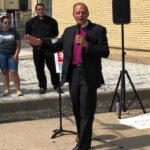

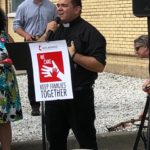


 Dear Sisters and Brothers in Christ,
Dear Sisters and Brothers in Christ,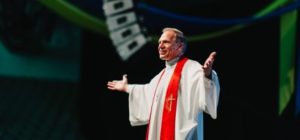 Want to know what goes on in the administration of the United Methodist Church in our state?
Want to know what goes on in the administration of the United Methodist Church in our state?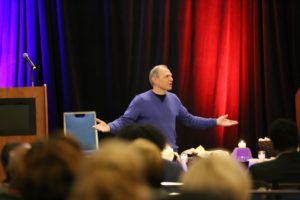 Bishop John Schol calls upon each church in the Greater New Jersey Annual Conference to spot potential leaders and prayerfully call, equip, challenge and support them. “I challenge each of our congregations to give permission for your pastor to be more apostolic and to continue to support and challenge them to develop their leadership to lead the congregation to engage in and grow more fully the mission.”
Bishop John Schol calls upon each church in the Greater New Jersey Annual Conference to spot potential leaders and prayerfully call, equip, challenge and support them. “I challenge each of our congregations to give permission for your pastor to be more apostolic and to continue to support and challenge them to develop their leadership to lead the congregation to engage in and grow more fully the mission.”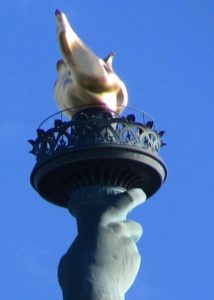 “Give me your tired, your poor,
“Give me your tired, your poor,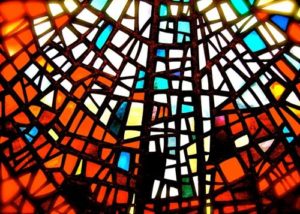
 Bishop John Schol gives the Greater New Jersey conference a report card
Bishop John Schol gives the Greater New Jersey conference a report card 